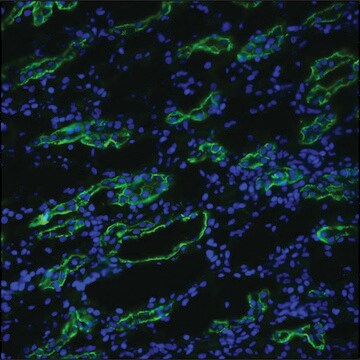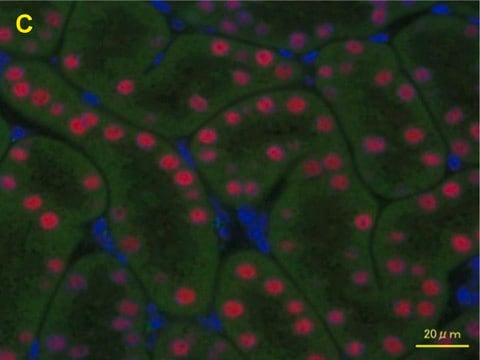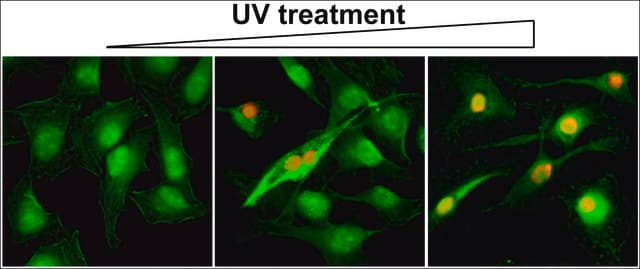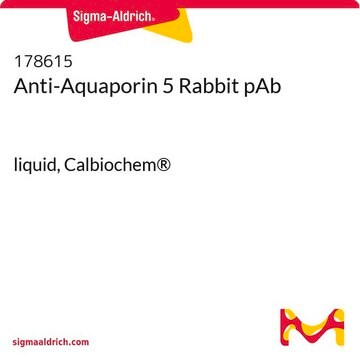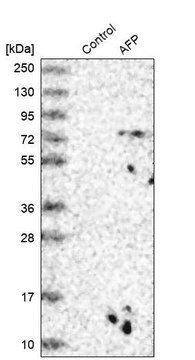AB15858
Anti-Aquaporin 5 Antibody
1 mg/mL, Chemicon®
Synonyme(s) :
AQP5
About This Item
Produits recommandés
Source biologique
rabbit
Niveau de qualité
Forme d'anticorps
affinity isolated antibody
Type de produit anticorps
primary antibodies
Clone
polyclonal
Produit purifié par
affinity chromatography
Espèces réactives
mouse, rat
Fabricant/nom de marque
Chemicon®
Concentration
1 mg/mL
Technique(s)
immunohistochemistry: suitable (paraffin)
western blot: suitable
Numéro d'accès NCBI
Numéro d'accès UniProt
Conditions d'expédition
wet ice
Modification post-traductionnelle de la cible
unmodified
Informations sur le gène
mouse ... Aqp5(11830)
rat ... Aqp5(25241)
Description générale
Spécificité
Immunogène
Application
Immunohistochemistry Analysis: A representative lot from independent laboratories detected Aquaporin 5 in various paraformaldehyde fixed tissues (see references).
Neuroscience
Developmental Signaling
Qualité
Western Blotting Analysis: 0.1 µg/mL of this antibody detected Aquaporin 5 in 10 µg of rat salivary gland tissue lysate.
Description de la cible
Forme physique
Stockage et stabilité
During shipment, small volumes of product will occasionally become entrapped in the seal of the product vial. For products with volumes of 200μL or less, we recommend gently tapping the vial on a hard surface or briefly centrifuging the vial in a tabletop centrifuge to dislodge any liquid in the container′s cap.
Remarque sur l'analyse
Tested on Rat Salivary Gland Lysate
Informations légales
Clause de non-responsabilité
Vous ne trouvez pas le bon produit ?
Essayez notre Outil de sélection de produits.
Code de la classe de stockage
12 - Non Combustible Liquids
Classe de danger pour l'eau (WGK)
WGK 1
Point d'éclair (°F)
Not applicable
Point d'éclair (°C)
Not applicable
Certificats d'analyse (COA)
Recherchez un Certificats d'analyse (COA) en saisissant le numéro de lot du produit. Les numéros de lot figurent sur l'étiquette du produit après les mots "Lot" ou "Batch".
Déjà en possession de ce produit ?
Retrouvez la documentation relative aux produits que vous avez récemment achetés dans la Bibliothèque de documents.
Notre équipe de scientifiques dispose d'une expérience dans tous les secteurs de la recherche, notamment en sciences de la vie, science des matériaux, synthèse chimique, chromatographie, analyse et dans de nombreux autres domaines..
Contacter notre Service technique
